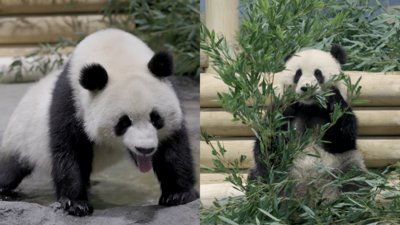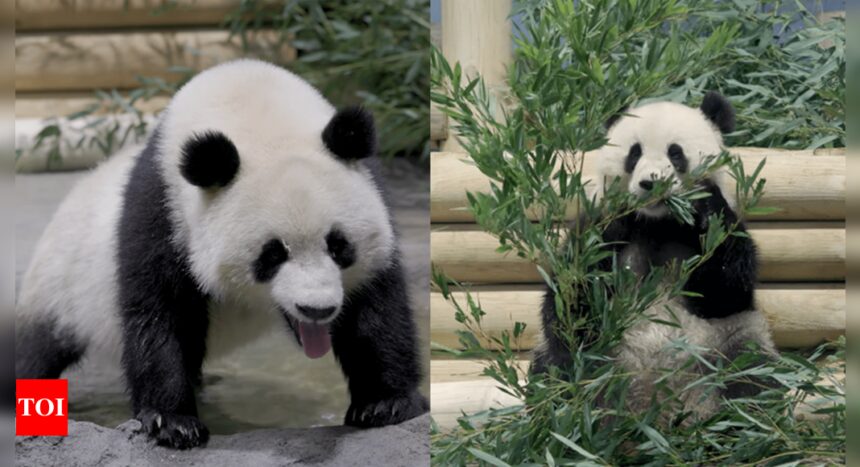
Bao Li, a male panda, and Qing Bao, a female panda, arrived in the United States on Tuesday morning. The pair landed at Dulles International Airport before making a short trek to their new home at the National Zoo in Northwest DC.
The pandas will remain in the US as part of a 10-year breeding and research agreement between China and the US.
National Zoo in an X post defined the names of both pandas they posted: In Mandarin Chinese, “Bao” means ‘precious’ and ‘treasure’.”Li” refers to vitality and strength. Put together, “Bao Li” means an active and vital power.
Qing Bao’s name means ‘green’ and ‘treasure’ in Mandarin Chinese. ‘Qing’ evokes the lush and mountainous habitat of pandas. ‘Bao,’ which means ‘precious’ and ‘treasure,’ reflects how cherished and adored she is.
After arriving at their new home, the pandas —described as energetic and fond of climbing— were playful and curious, eagerly exploring their surroundings, enjoying leisure time, and, of course, munching on their favourite bamboo.
According to NBC Washington, Bao Li, although born in China, has strong ties to Washington, DC. He is the offspring of Bao Bao, who was born at the National Zoo in 2013. This makes him the grandchild of Mei Xiang and Tian Tian, who resided at the zoo for nearly 23 years before relocating to China last fall with their youngest cub.
Smithsonian National Zoo will now be home to Bao Li and Qing Bao. The pandas will undergo a 30-day quarantine period before acclimating to their new habitat. They are set to make their public debut in January.
The giant panda has always been a symbol of peace and friendship in China and has long been used in the country’s “panda diplomacy” to foster international relations. Beginning in 1957, China gifted pandas to countries like the Soviet Union, the US, and North Korea as a goodwill gesture.
However, in 1982, as the species became endangered, China halted the gifting practice. Instead, it shifted to lending pandas to select countries, continuing to use the beloved animal for diplomatic purposes.
The species is currently classified as “vulnerable” by the International Union for Conservation of Nature (IUCN), and these programs play a crucial role in supporting their longevity. Some pandas, like Bao Li, may continue their diplomatic legacy, and others may even be reintroduced into the wild.








